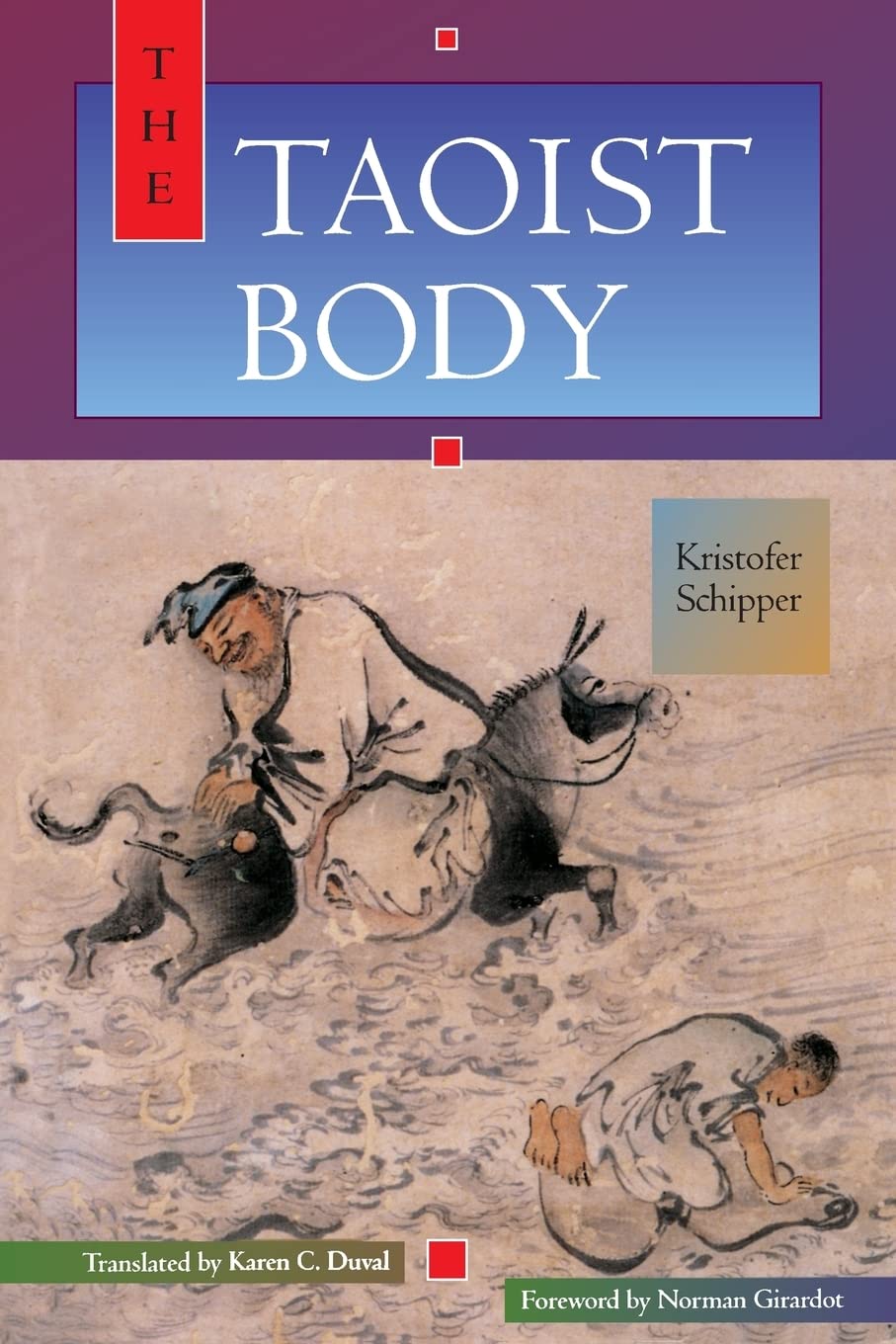معلومات عنا
دعم العملاء
احصل على التطبيق

قم بتوجيه الكاميرا لتنزيل التطبيق
حقوق الطبع والنشر © 2024 Desertcart Holdings Limited


The Taoist Body
B**G
An excellent well researched book on practical Taoism in China.
The book itself is delightful to read. It is well researched and, where references to popular rituals within China appear to differ from a pure Taoist tradition the writer points this out. I like that as I have a perception of what Taoist might mean so it is reassuring to have my opinion upheld.The delivery and condition of the book was excellent.Anne G.
N**E
Three Stars
Takes time to read and study not suited for beginners just starting to explor this somewhat complex subject.
Z**O
A good scholarly overview of Taoism...
Schipper is one of the few of European descent to ever become an ordained Taoist priest. This gives him a unique view on some of the history and practices of Taoism but there are some caveats to be noted.The book provides a good contextual overview of many facets of the culture that gave rise to Taoism. Schipper makes a number of interesting points regarding the general culture and Taoist practices including the so-called 'bedroom manuals'. Also included are some good points about gender issues and Taoism as well as his take on some of the Taoist legends and past masters. There are short chapters outlining Qigong and the practice of cultivation which include some very good (although short) translations of some of the more famous Taoist canons. There is also a great overview of the whole cereal abstinence debate as well as some thoughts on Taoist external alchemy that I found quite interesting. There is a good (although too short, IMHO) overview on Taoist hermits and why the took to the mountains.All of this is presented in quite a scholarly manner, more in line with a true reference book than many others available right now. This is both good and bad, in my opinion. That is, we should remember that "the Tao that is spoken of is not the true Tao". Schipper needs to be taken with a large 'grain of salt' since obviously his 'version' of the Tao is dependent on his master's lineage. There is a reason there are so many 'flavours' of Taoism and that has to do with the fact that, ultimately, cultivation is an extremely personal past time!So there are many aspects that are missing and possibly misleading here. Bigu (or even fasting) is not really mentioned, probably because it is not part of his sect's way. His overview on 'bedroom manuals' is interesting but that is not to say it is the 'truth' - answering something like that is ultimately a personal journey and all the spoken and written material is ultimately just a finger pointing at the moon. The same goes for everything else in the book - just one man's opinion. If he is truly practising the Way and cultivating daily then I suspect he will need to rewrite this book every year (or few months).Anyway, definitely worth reading and some good ideas. As always, your focus on practice will ultimately determine your path.
A**A
Very worthwhile
I've read this book several times. The first time, I was the tourist delighted by the ethnographic details, skimming over the more philosophical bits thinking I'd read similar material elsewhere. With each subsequent reading, I became more impressed with how accurate the author's understanding and descriptions of the inner states and rituals are, and more recently, how he maintains the true spirit of Taoism, of 'non-doing' , unlike many other books who make use of the knowledge of the Taoist inner body for gains as their selling point. It isn't a easy read because of the way the material is organised, and the author tries to cover many aspects of the Taoist tradition so each section is quite brief. But the purity of spirit means what it has to say is completely in accordance with the highest teachings in all other eastern traditions as well as alchemy. That the author could convey the heart of wisdom in the space of a few pages, using few well chosen quotes and stories demonstrate the command he has over the subject. I recommend it highly.
M**E
Essential text by a man who became both an international scholar and Taoist priest
Perhaps the most important study of Taoism available in English. - In the early 1960's Shipper was in Taiwan researching Taoism. Frustrated by the limitations of dealing with the Chinese cultural association he set out to observe Taoism at first hand by himself. He discovered in the Heavenly Masters tradition, a continuous living tradition that traced directly back to the fourth century AD on mainland China. He was then accepted for training as a Taoist priest. Four years of training and two decades of further scholarship led to the publication of this fascinating book. The concept of the Taoist Body contains both heaven, humanity and earth and also our individual bodies which form a microcosm of the universe. Rich in detail both in textual study and first hand descriptions of Taoist ritual, this text is essential reading for anyone with an interest in Taoism (although complete newcomers to the subject need to spend a little time on the Tao Te Ching/Chang Tzu first)I could not recommend it more highly.
J**N
Four Stars
given me a little insight into the Taoist way of thinking.
J**O
A necessary compendium...
...for whoever wants to be introduced in the Daoist world. It has been written few decades ago and it is referred mainly to the Taiwan scene, but remains one of the fundamental introductory works by one of the few Western insider scholars.
ترست بايلوت
منذ أسبوع
منذ شهر